Ditapis dengan

Kamus Psikologi
- Edisi
- -
- ISBN/ISSN
- -
- Deskripsi Fisik
- 350 hlm.; 20,5 cm.
- Judul Seri
- -
- No. Panggil
- 150.03 KAM k
- Edisi
- -
- ISBN/ISSN
- -
- Deskripsi Fisik
- 350 hlm.; 20,5 cm.
- Judul Seri
- -
- No. Panggil
- 150.03 KAM k
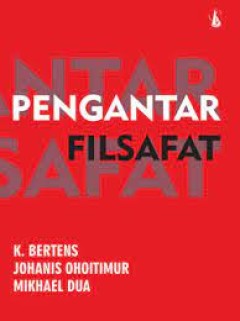
Pengantar Filsafat
Belajar filsafat mirip dengan berpariwisata. Wisatawan ingin keluar dari rutinitas sehari-hari. Jika dia penghuni kota, sering kali ia paling senang berlibur di alam bebas. Karena sudah bosan dengan banyaknya beton dan aspal di kota tinggalnya, ia dapat menikmati betul pemandangan alam yang mempertunjukkan sawah yang hijau permai, gunung yang berselimutkan hutan lebat, laut biru tua dengan pant…
- Edisi
- Cetakan ke-1
- ISBN/ISSN
- 978-979-21-5464-1
- Deskripsi Fisik
- xii + 428.; ils.; 24 cm.
- Judul Seri
- -
- No. Panggil
- 100 BER p
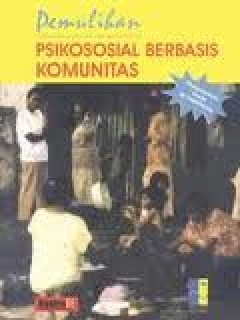
Pemulihan Psikososial Berbasis Komunitas: Refleksi Untuk Konteks Indonesia
- Edisi
- Cetakan ke-1
- ISBN/ISSN
- 979-98225-0-5
- Deskripsi Fisik
- x + 256 hlm.; 21,5 cm.
- Judul Seri
- -
- No. Panggil
- 121.68598 PEM p
- Edisi
- Cetakan ke-1
- ISBN/ISSN
- 979-98225-0-5
- Deskripsi Fisik
- x + 256 hlm.; 21,5 cm.
- Judul Seri
- -
- No. Panggil
- 121.68598 PEM p
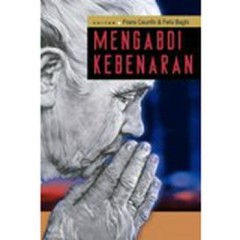
Mengabdi Kebenaran: Penghormatan Untuk P.Josef Pieniazek Svd Pada Hut ke-80
Kebenaran tidak hanya bersinggungan dengan himpunan pengetahuan dan obyek refleksi serta pergulatan ilmiah, tetapi terutama merupakan bagian dari iman yang dihayati dab persaksikan. Kebenaran tidak hanya berbatas pada pengetahuan namun juga berkaitan dengan imperatif moral dan religius yang terungkap dalam sikap takzim dan saleh untuk tidak memanipulasinya dengan penjelasan dan penafsiran yang …
- Edisi
- -
- ISBN/ISSN
- 9799447925
- Deskripsi Fisik
- xxiii +373 hlm.; 21 cm.
- Judul Seri
- -
- No. Panggil
- 100 MEN m.a
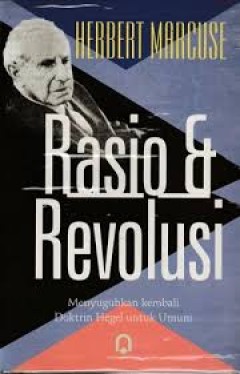
Rasio dan Revolusi: Menyuguhkan Kembali Doktrin Hegel untuk Umum
Sebuah karya filosofis pasti mengalami perubahan seiring berjalannya waktu. Jika konsep-konsepnya memiliki kaitan dengan tujuan dan kepentingan manusia, perubahan fundamentall dalam situasi historis akan mendorong manusia untuk menengok kembali ajaran-ajarannya dengan kacamata baru. Buku ini menyuguhkan kembali filsafat Hegel. Ditulis oleh filsuf sosial kenamaan, Herbert Marcuse, sistem fils…
- Edisi
- -
- ISBN/ISSN
- 9793477237
- Deskripsi Fisik
- viii + 366 hlm.; 23,5 cm.
- Judul Seri
- -
- No. Panggil
- 193 MAR r
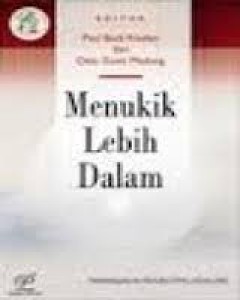
Menukik Lebih Dalam: Kenangan 40 Tahun STFK Ledalero
Dalam buku "MEnukik LEbih Dalam" kita akan menemukan banyak kekayaan yang mengejutkan, menimbulkan rasa takjub atau malah menggoncngkan kerangka pengetahuan dan keyakinan yang telah ada. Para penulis artikel buku ini, yakni sejumlah dosen dan alumni STFK Ledalero, telah berusaha menukik ke dalam bidang yang dikaji, digeluti dan diminatinya.
- Edisi
- -
- ISBN/ISSN
- 9789799447794
- Deskripsi Fisik
- xx + 474 hlm.; 21 cm.
- Judul Seri
- -
- No. Panggil
- 100 MEN m

Tanggung Jawab Pengetahuan: Mempertimbangkan Epistemologi Secara Kultural
- Edisi
- -
- ISBN/ISSN
- 9796729105
- Deskripsi Fisik
- 234 hlm.; 22,5 cm.
- Judul Seri
- -
- No. Panggil
- 121 WAT t
- Edisi
- -
- ISBN/ISSN
- 9796729105
- Deskripsi Fisik
- 234 hlm.; 22,5 cm.
- Judul Seri
- -
- No. Panggil
- 121 WAT t

Memahami Cakrawala Sastra dan Kehidupan
- Edisi
- Cetakan ke-1
- ISBN/ISSN
- 979-8493-02-8
- Deskripsi Fisik
- viii + 168 hlm.; 21 cm.
- Judul Seri
- -
- No. Panggil
- 113.8 SUT m
- Edisi
- Cetakan ke-1
- ISBN/ISSN
- 979-8493-02-8
- Deskripsi Fisik
- viii + 168 hlm.; 21 cm.
- Judul Seri
- -
- No. Panggil
- 113.8 SUT m

Plato: Jalan Menuju Pengetahuan Yang Benar
Manakah yang sebenarnya berpengaruh dalam membentuk pengetahuan : indera atau akal budi (intelek) kita ? Menurut Plato, antara dunia indrawi dengan dunia intelek terdapat hubungan yang erat. Cerapan berdasarkan indera dibutuhkan untuk membentuk pengetahuan pada tataran akal budi (forma-forma, kategori). Terbatas pada yang dicerap oleh indera saja, kita tidak dapat mencapai pengetahuan. Pengetah…
- Edisi
- -
- ISBN/ISSN
- 9794975494
- Deskripsi Fisik
- 80 hlm.; 21 cm.
- Judul Seri
- -
- No. Panggil
- 184 KEB p
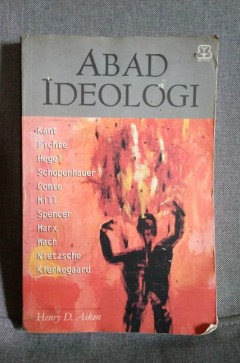
Abad Ideologi
Buku ini sangat menolong untuk membuat peta kognisi atas posisi, peran, dan pengaruh pemikiran para filsuf besar abad ke-19 seperti Kant, Fichte, Hegel, Schopenhauer, Comte, Mill, Spencer, Marx, Mach, Nietzsche, dan Kierkegaard. Lalu, meskipun membahas suatu periode yang gegap gempita, penulis tak tergelincir pada rius dan nikmatnya perdebatan semata-mata. Abad Ideologi ditulis bagi pembaca yan…
- Edisi
- Cetakan ke-1
- ISBN/ISSN
- 979-3062-25-8
- Deskripsi Fisik
- xiv + 356 hlm.; 24 cm
- Judul Seri
- -
- No. Panggil
- 140 AIK a
 Karya Umum
Karya Umum  Filsafat
Filsafat  Agama
Agama  Ilmu-ilmu Sosial
Ilmu-ilmu Sosial  Bahasa
Bahasa  Ilmu-ilmu Murni
Ilmu-ilmu Murni  Ilmu-ilmu Terapan
Ilmu-ilmu Terapan  Kesenian, Hiburan, dan Olahraga
Kesenian, Hiburan, dan Olahraga  Kesusastraan
Kesusastraan  Geografi dan Sejarah
Geografi dan Sejarah